Tech picks from the week in which CeramicSpeed announced its €739, 2.5 second-saving, pulley system
What a week to be alive...
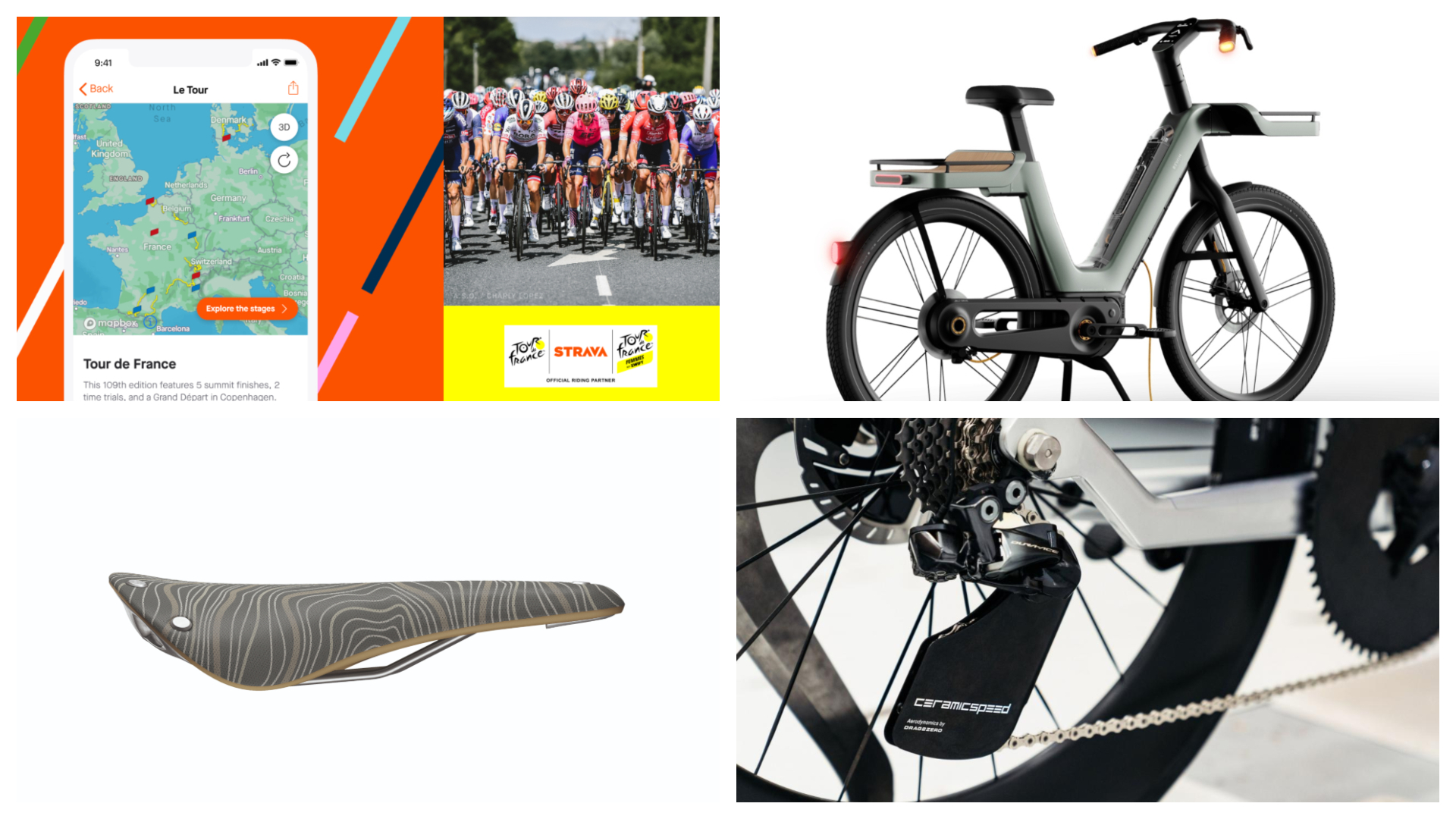
The latest race content, interviews, features, reviews and expert buying guides, direct to your inbox!
You are now subscribed
Your newsletter sign-up was successful
This week's roundup is an electric mix of products, from the real to the imagined. It was quite a week - perhaps bested by CeramicSpeed's rather incredible looking - but extremely expensive - new pulley wheel system.
Other (slightly more reasonably priced) highlights included the Brooks Cambium C17 saddle, a limited edition version of its popular rubber perch, decked out in map-inspired design and aimed for roads less ridden.
To celebrate the Tour de France and the Tour de France Femmes, Strava has created a dedicated hub that will allow its users to follow the races in detail, from rider stats to stage profiles, as well as a few challenges to boot. Meanwhile another French institution, the Decathlon sports store, has unveiled a concept commuter bike that, if it sees the light of day, could help transform the way we commute.
Brooks releases limited-edition saddle aimed at adventurous riders
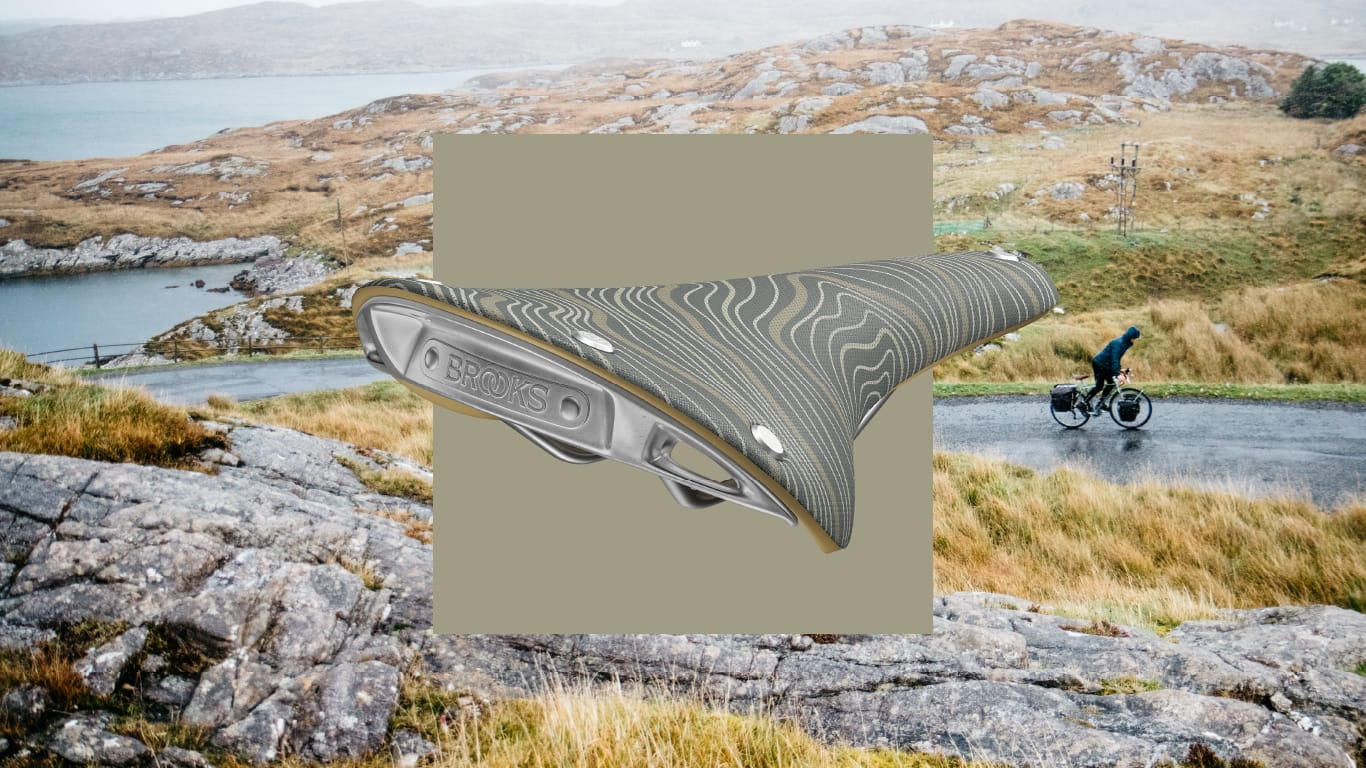
Like Brooks saddles in general, the Cambium models have acquired a dedicated following over the years, particularly among tourers, bikepackers and those who prioritise comfort above weight.
The limited-edition C17 Special LAB saddle celebrates what Brooks describes as “the adventure-riding set” through a gradient-map design. While the pattern is something of departure for a saddle that’s normally a single, solid colour the other details that have made it a firm favourite remain.
The vulcanized natural rubber top is what Brooks says gives the Cambium C17 its lasting comfort. It’s also the reason that, unlike its leather saddles, it doesn’t require breaking in. This top, which is coated in a UV and abrasion-resistant nylon, is both flexible and weather resistant. If existing models are anything to go by it should equate to a durable saddle that’s fit for purpose, whether it's gravel racing or multi-day trips. There’s also a reinforced nylon nose piece and Brooks’s signature aluminium rivets to complete the look.
The robust plastic body and steel rails mean the C17 Special LAB saddle is no lightweight, tipping the scales at a claimed 464g. However, given its intended use it's unlikely to be viewed as negative by interested parties.
The latest race content, interviews, features, reviews and expert buying guides, direct to your inbox!
The Brooks Cambium C17 Special LAB saddle retails at £120. For more information visit brooksengland.com
Strava’s Tour de France hub brings users a detailed in-race experience
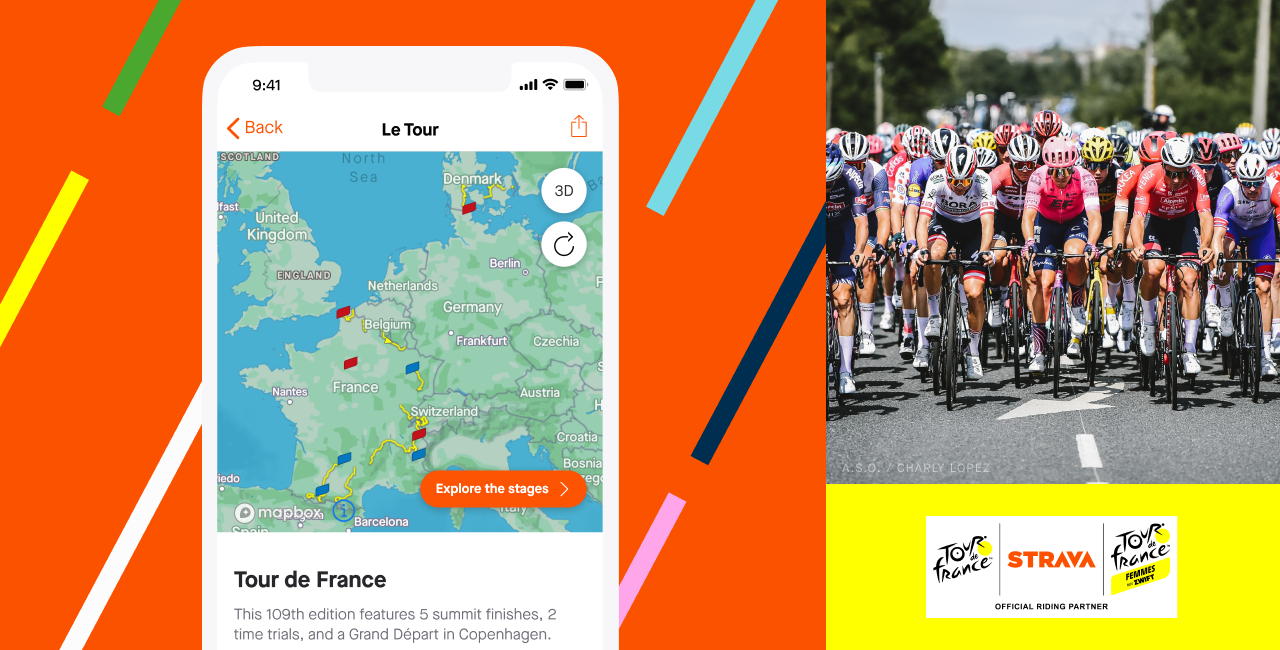
Ahead of this year’s Tour de France and Tour de France Femmes avec Zwift, Strava has launched its own dedicated hub designed to bring its users closer to the race than ever before.
This ‘insider access’, delivered through the app via a click-through banner, includes exclusive insights into official Tour segments with data delivered directly from the race, stats from each stage included uploaded numbers from the pros and Tour challenges, which include what Strava describes as “bite-sized bits” of the real race.
“By providing a platform where cycling fans can experience stage previews, race insights and join challenges, more athletes can experience the joy of cycling’s competition and camaraderie,” says Steve Lloyd, chief product and technology officer at Strava. “Every effort uploaded from the pros enhances our understanding, appreciation and excitement for these incredible athletes and iconic races.”
This “backstage race pass” is open to all Strava athletes and requires no additional subscription. To access on your mobile visit https://strava.app.link/Tour-2022
Aero pulley system saves you watts but not money
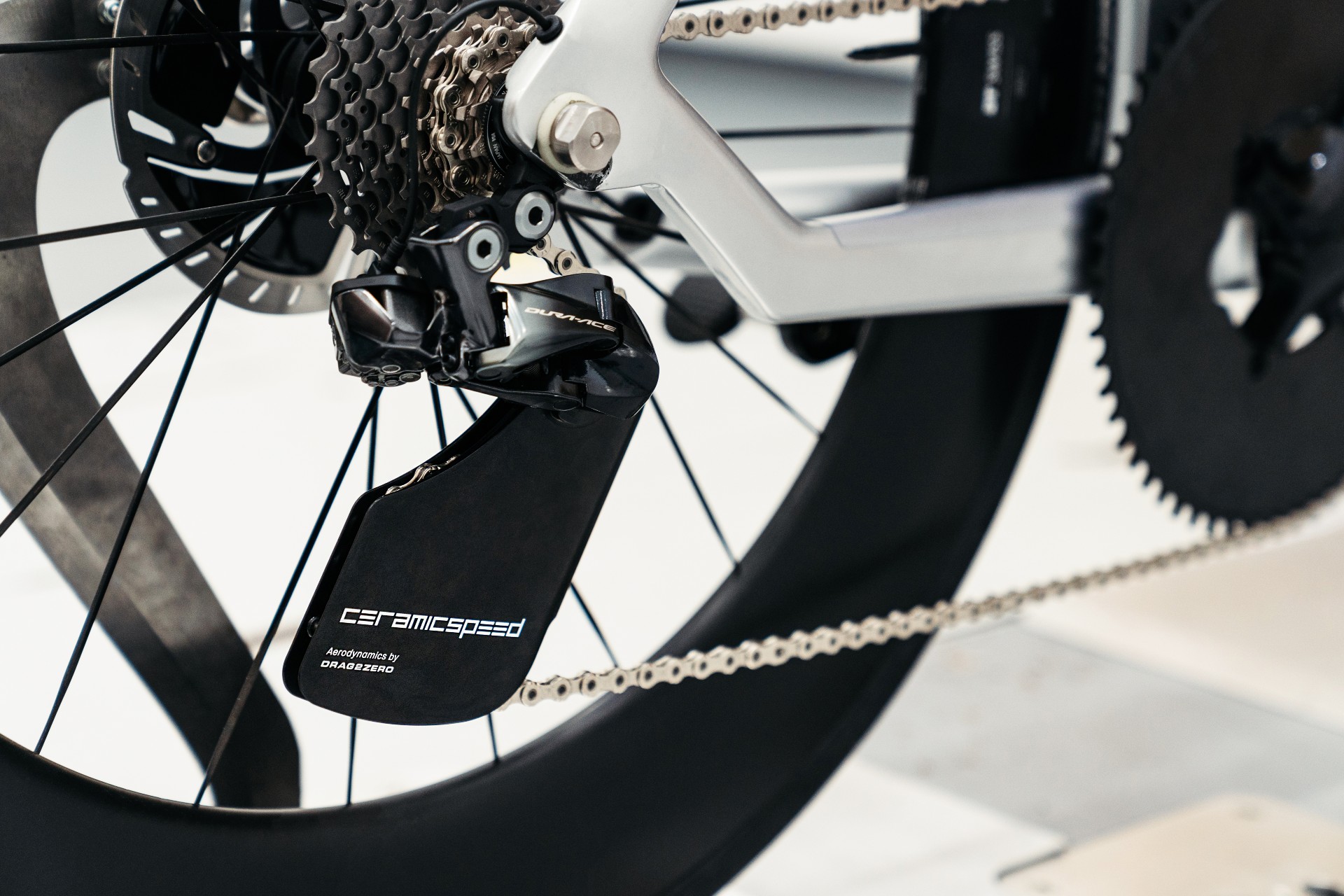
If you appreciate the concept of marginal gains, and the work that goes into achieving them, then CeramicSpeed’s latest creation, the OSPW Aero, is likely to pique your interest.
The new pulley system claims to save 2.5 seconds over a 25km time trial ridden at 50kph, with a reduction in drag of between 40-60% compared to a regular derailleur accounting for these savings.
Working in collaboration with British aerodynamics expert Simon Smart for more than two years, the end product is a carbon-reinforced PA cage that sits around the Danish brand’s oversized pulley wheel design. According to Smart it’s a tricky area of the bike when it comes to air flow, especially given the changes in position and angle that occurs with each gear change.
The OSPW Aero has already been ridden at the WorldTour level, with riders from both Israel-Premier Tech and Intermarché–Wanty–Gobert using at this year’s Giro d’Italia. Given it’s eye-wateringly high price tag, €739 to be exact, it’s likely to remain largely for professional use only, too. However, should you want to fit one to your bike, it comes in three versions for Shimano 12-speed, Shimano 11-speed and SRAM Red/Force AXS.
Or you could make your own out of a Coke can, like Simon Warren aka 100 Climbs did.
Real world tests have so far proved inconclusive, felt maybe like 1W improvement. I have some wind tunnel time booked next week to get proper results. #aero pic.twitter.com/0fj8eWEd5JJune 22, 2022
Is this the future of commuting by bike?
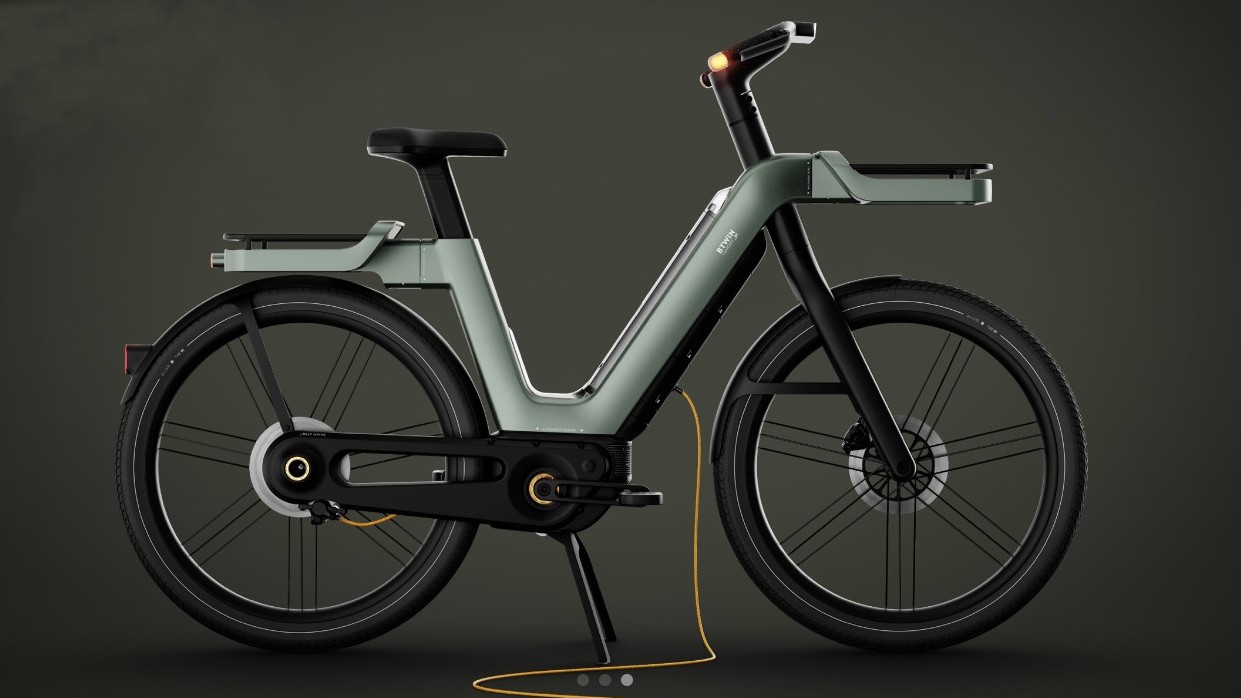
Decathlon’s Magic Bike is just a concept. For now at least.
The French sporting goods giant has created a website where you can view its B’Twin Concept_01, or Magic Bike, in more detail. Well, sort of.
The virtual bike comes with very little information. No spec details. No mention of frame material. And also, unsurprisingly, no price. However, the object is clear: to create a bicycle that non-cyclists will embrace, helping to reduce the number of home-to-work journeys of less than 5km that are made by car. According to the website this figure currently stands at 60%, which represents 25% of CO2 emissions.
So what does the website tell us? The Magic Bike will be driven by an electric motor, with automatic shifting and will use a protected belt transmission to limit maintenance. Braking is achieved via a single lever. The battery is integrated into the downtube and uses a modular system so you choose the battery for your desired distance range.
There’s plenty of integration, too. Kickstand, front and rear racks, and lights are all designed to fit seamlessly into the overall design. It also uses a wireless recognition system via a key or smartphone and locks automatically when you approach.
Will it see the light of day? Only time will tell, but as concepts go it’s an intriguing one.
Luke Friend has worked as a writer, editor and copywriter for over twenty five years. Across books, magazines and websites, he's covered a broad range of topics for a range of clients including Major League Baseball, Golf Digest, the National Trust and the NHS. He has an MA in Professional Writing from Falmouth University and is a qualified bicycle mechanic. He has been a cycling enthusiast from an early age, partly due to watching the Tour de France on TV. He's a keen follower of bike racing to this day as well as a regular road and gravel rider.